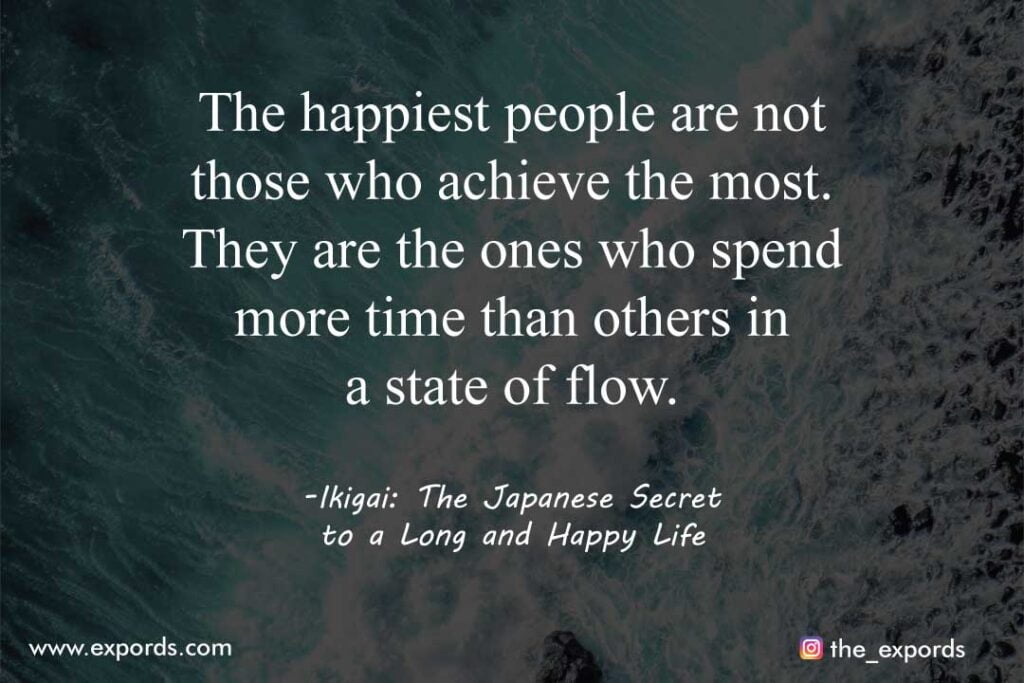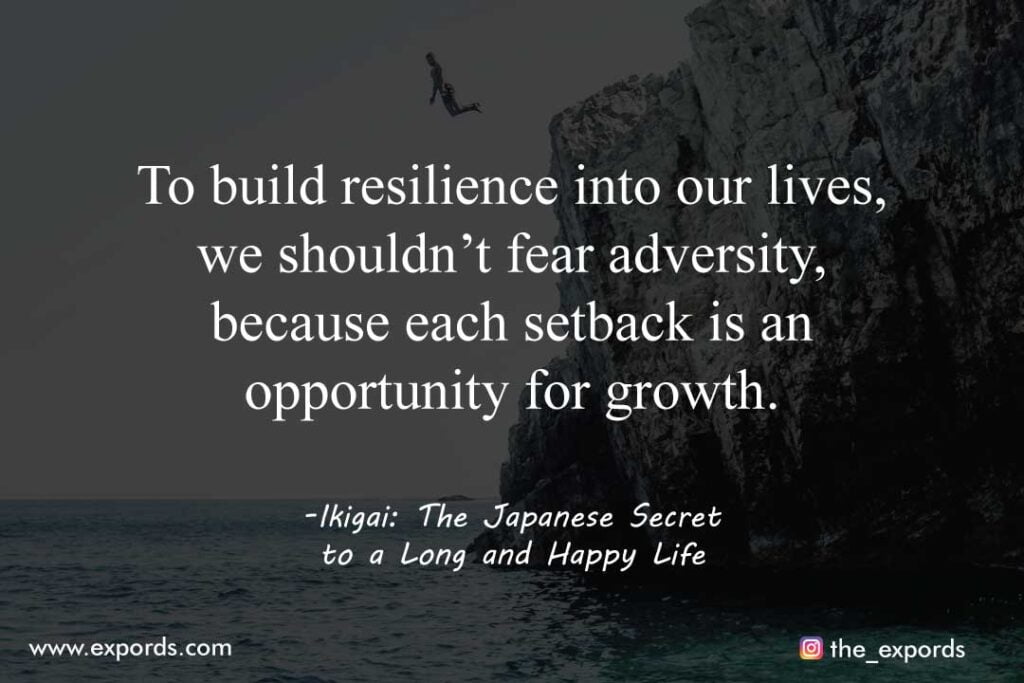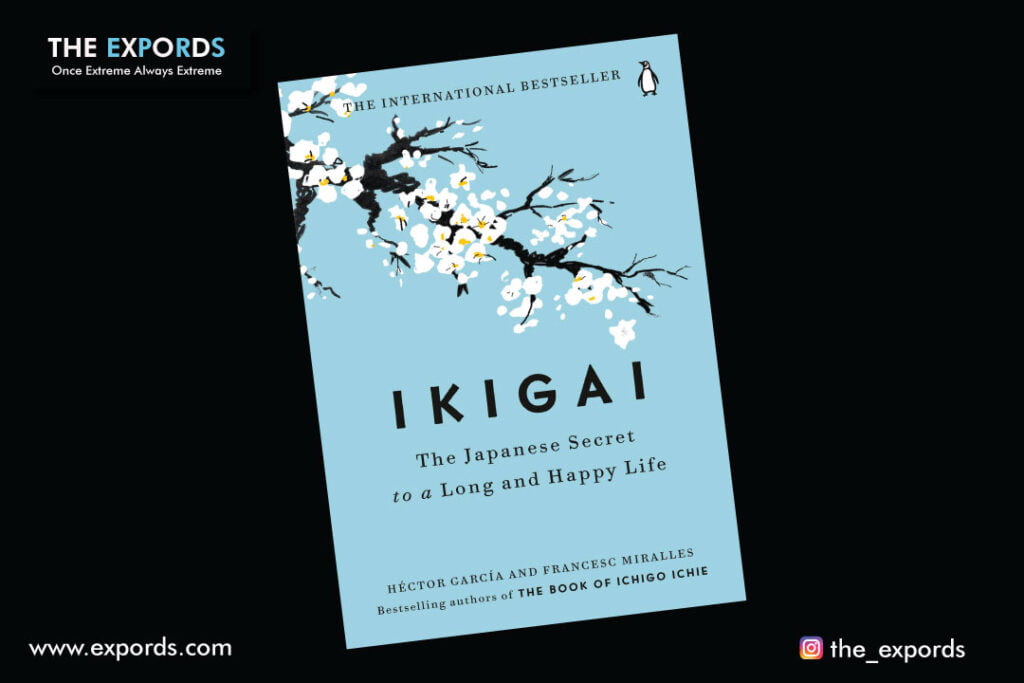This post may contain affiliate links. If you buy a product through those links, I may earn a small commission at no extra cost to you.
Title: Ikigai- Book Review
Book: Ikigai: The Japanese Secret to a Long and Happy Life
Author: Hector Garcia and Francesc Miralles
Publisher: Hutchinson
Pages: 194 (Paperback)
First Published: 2016
I recently read the book Ikigai: The Japanese Secret to a Long and Happy Life and found that it is incredible. The book can help you realize the value of a purposeful life and help you find your purpose. In this article, I would tell you everything you need to know about the book Ikigai- about the authors, what the book is about, what I have learned from the book, what I liked and didn’t like about it, whether it is worth reading, and who should read it. So, let’s begin from the authors-
About the authors
Hector Garcia and Francesc Miralles are the authors of Ikigai: The Japanese Secret to a Long and Happy Life.
Hector Gracia, born in Spain, is an author and an aspiring philosopher. He has been living in Japan for 18 years. He worked as a software engineer in Switzerland before moving to Japan. His most well-known books are Ikigai, A Geek in Japan, and Ichigo Ichie.
Francesc Miralles, also born in Spain, is an award-winning author of fiction, self-help, and inspirational books. He studied journalism, English literature, and German. He has also worked as an editor, translator, ghostwriter, and musician. He is well-known for his book Ikigai and Love in Lowercase.
What is the book Ikigai about?
The authors of Ikigai have interviewed hundreds of centenarians of Japan to unravel their secret of being young and happy, even at an old age. Most of the Japanese belonged to Okinawa, a Japanese Island, where 24 people out of 100,000 are over the age of 100- far more than the global average. Women of Okinawa live longer and have fewer diseases than anywhere else in the world. The book contains lessons based on what these Japanese centenarians eat and drink, how they treat their work and their style of living.
The book introduces the concept of ikigai and how it helps the Japanese people live a healthy life even at an old age. Then the authors describe the secrets of anti-aging and how stress can degrade our health. Concepts of Logo-therapy and case studies where people found their purpose are described. The basic principles of Morita Therapy are also explained. In the next chapter, the authors explain flow, three steps through which flow can be achieved in work, and how you can discover your ikigai with the help of flow.
The following chapters contain some information about Japanese centenarians and their philosophy, habits, lifestyle, and diet. Then the book explains some yoga and exercises of Japanese people which keeps them healthy. The last chapter contains the concept of resilience and antifragility, which can help you handle life’s challenges without getting broken. The book ends with an epilogue that includes the ten rules of ikigai.
What have I learned from Ikigai?
Three key lessons which I have learned from the book is as follows-
1.Follow your ikigai
“Ikigai” is a Japanese word that means- a reason for living, a meaning for living. Having an ikigai means having a clear purpose that makes our life worthwhile. Your ikigai is something you love (watching Netflix, scrolling Instagram, sleeping, etc. won’t count), you are good at, you can be paid for, and something the world needs. For example, if you love singing a lot and are good at it, your ikigai is probably singing. The world needs good songs, and you can be paid for them.
So, first, you need to find your ikigai or purpose, and then you should constantly take action to fulfill this purpose. The good news is this action wouldn’t seem boring because it will give a sense of satisfaction. If you have a definite purpose, an Ikigai, you would never feel lost.
“He who has a why to live for can bear with almost any how.”
-Viktor Frankl, an Austrian neurologist
2.Work with the flow

We all have experienced a situation in our lives where we lost track of time. It may be when you were reading a book, and you got so much immersed in it that you didn’t realize how 3 hours passed like a flash of light. But there are also times when the opposite happens, and time doesn’t pass at all. You have probably experienced this during a boring lecture. What causes this difference? Why does time pass slowly when we do something that we don’t like while it passes swiftly when we do something of our interest?
The answer is flow. Ta-dah! The psychologist Mihaly Csikszentmihalyi coined the term flow and described it as the pleasure we feel when we completely immerse ourselves in what we are doing. According to him,
The state in which people are so involved in an activity that nothing else seems to matter; the experience itself is so enjoyable that people will do it even at a great cost, for the sheer shake of doing it.
When we are in a state of flow, we focus on our work and not on distractions. The intensity of focus leads to Deep Work which increases our productivity and at the same time gives satisfaction. Once we find flow in our work, the work will be fun.
3. Be resilient
This is the most powerful lesson which I learned from the book Ikigai– to be resilient. Resilience is defined as the ability to withstand harm without getting weakened. It means to accept everything life throws at us, without blaming others, without getting frustrated, without feeling discouraged.
When you have a clearly defined ikigai, you have to pursue it no matter how difficult the situation becomes. You can’t give up even if things are not going according to your expectation. That’s when the importance of resilience comes. Resilience is our ability to deal with setbacks. The more resilient we are, the easier it will be to handle the obstacles without getting broken. Those who are resilient, they are good at dealing with negative situations without getting discouraged. They adapt to changes and concentrate only on those things which they can change.

What did I like about Ikigai?
First of all, I liked the concept of ikigai and how our ikigai can help us live a meaningful life. This is life-changing. The concept of flow and how to experience flow in our work was the most beautiful chapter in the book. I liked it so much that I made notes of this concept. I also liked the part where the authors describe resilience and anti-fragility.
The book made me feel the importance of slowing down, being in the moment, and showing gratitude for every small thing I have in this life. This book helped me to live with peace, make friends, and enjoy each and every moment. I don’t know; the book is a kind of magic, which made me realize that there is nothing to worry about but only to be happy. I was happy after reading it.
What didn’t I like about Ikigai?
Before reading the book, I expected that this book is all about ikigai and finding purpose and will help me find my own. But when I read it, I found that it doesn’t contain much information about finding ikigai, which disappointed me. The book includes advice about exercises and eating vegetables, which are somewhat familiar and can be found in any blog. These were the few things that I didn’t like in the book.
Is Ikigai worth reading?
Yes, the book Ikigai is worth reading because it contains many powerful and proven concepts which can help you to improve your way of living. It can help you realize the value of a purposeful life and find your purpose. In today’s stressful and fast-paced world, we rarely get any time to heal our body, mind, and soul. This book can help you to understand the importance of slowing down and being in the present. If you feel bored in life, Ikigai can help you to enjoy and get lost in your work. This book contains interviews of Japanese centenarians, which would motivate you to live a simple life with high thinking. I found all the lessons highly practical, which anyone can easily implement in their life and get remarkable results.
Who should read Ikigai?
The book Ikigai must be read by all those people who don’t enjoy their work and are frustrated, or who are stressed and busy in their work and hardly live their life, or who doesn’t have a purpose in life and feels lost, or who are discouraged by failures, or all of the above. This book can also help those people who don’t have a good lifestyle, eat junk foods, don’t exercise, drink and smoke, etc. Ikigai can make anyone understand the importance of living a purposeful life. I will recommend this book to anyone who wants to live a long, happy, and purposeful life.


I like all the points you wrote about the book.
A few of them I already follow in my daily life and some are new for me …that also I will try to put in my habit. This summary is really helpful.
Thanks, Tapomay. I am glad that the summary helped. Keep reading, keep improving.
Pingback: Ikigai -Book Review - Expords
Pingback: Be Yourself; Everyone Else Is Already Taken - Expords
Pingback: There Is Nothing Permanent Except Change - Expords
Pingback: 30 Ways to Make Your Life More Interesting - Expords
Pingback: Book Review: ‘Ikigai’ And Here Are Reasons Why You Should Read It!
I READ THIS BOOK IN TAMIL.IT IS BEST SELF MOTIVATION BOOK .10 QUOTES WE LEARN FROM THIS BOOK ALL ARE WORTH FOR OUR BEAUTIFUL LIFE.LIVE THE MOMENT
Ikigai is indeed a life changing book.
It’s worth reading
Glad that you liked the blog! Thanks, Akaresh.
I was a bit dissapointed by the book. As you said, there are multiple pages about exercising and eating vegetables to live a healthy life, which is far from being groundbreaking. I did like, however, some concepts like happiness is in the doing, not in the end result.